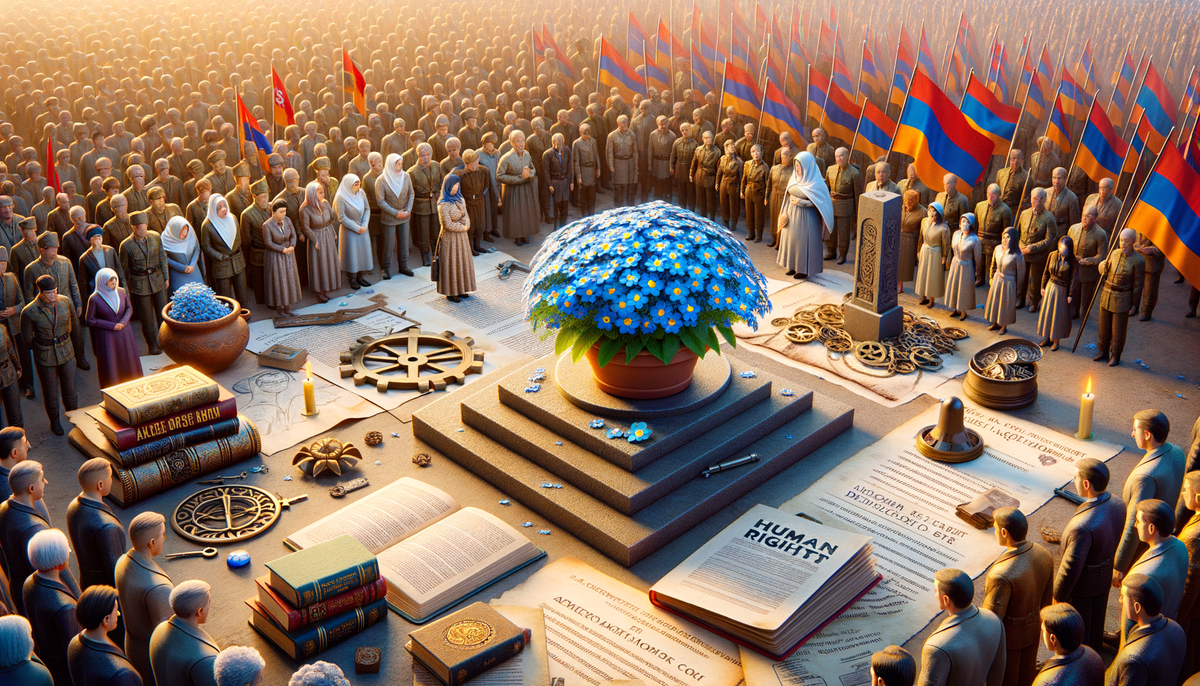Armenian Genocide Day: Remembering the Past, Shaping the Future
Explore the enduring significance of Armenian Genocide Day, its historical roots, and how it informs both remembrance and global human rights advocacy.

Armenian Genocide Day: Remembering the Past, Shaping the Future
Armenian Genocide Remembrance Day, widely known as Armenian Genocide Memorial Day or Armenian Martyrs Day, stands as a solemn observance to honor the memory of the estimated 1.5 million Armenians who perished between 1915 and 1920 during the horrific events orchestrated by the Ottoman Empire. This day of remembrance is held annually on April 24th and serves as a crucial pillar for acknowledging not only the travails of the Armenian people but also their enduring resilience.
The Deep Historical Roots of Armenian Genocide Day
The origins of Armenian Genocide Day trace back to the harrowing night of April 24, 1915, marking the detention and execution of hundreds of Armenian intellectuals and leaders in Constantinople, now Istanbul. This catalyzing event unraveled into a sweeping campaign of ethnic cleansing and forced deportations involving profound loss of lives, cultures, and communities, setting a grim precedent as the first notable genocide of the 20th century. The significance of chronicling and honoring this moment resonates robustly with international acknowledgement movements and diaspora communities.
Observance and Commemoration: A Global Overview
Within Armenia, the day is marked as a national holiday, where citizens engage in profound tributes at the Tsitsernakaberd Genocide Memorial in Yerevan. The visual grandeur of thousands advancing to lay flowers at the eternal flame encapsulates the collective commitment to memory and justice, deeply rooted in traditions extending back to the 1920s.
Elsewhere, robust commemorations are visible in nations hosting significant Armenian populations, such as the United States, France, Russia, and Lebanon. The vibrant Armenian diaspora orchestrates marches, vigils, and educational forums, reinforcing the narrative of historical acknowledgment and ongoing genocide prevention advocacy. Los Angeles, for example, substantiates this day with governmental proclamations and educational endeavors that cast light upon the historical travesties and present solidarity in cultural persistence.
The Significance of Armenian Genocide Day
Beyond the agony and remembrance, Armenian Genocide Day unfolds as a statement of resilience and an impetus for ongoing global dialogue on human rights and genocide prevention. Official recognition by various countries serves as a pivotal facet in widespread education and acknowledgment efforts, albeit discussions remain politically charged in some international spheres.
Governor Gavin Newsom of California, in his 2023 proclamation, emphasized the dual aspect of remembrance and the elevation of contributions made by Armenian Americans to societal enrichment, underscoring a narrative that transforms adversity into valuable cultural integration.
Memorials and Education: Preserving Memory and Promoting Awareness
The Tsitsernakaberd Genocide Memorial remains central to the commemorative ritual, where the eternal flame captivates as a lasting symbol of remembrance. Internationally, this symbolism fosters hope for future generations to advocate against genocides and uphold human rights. Alongside these solemn rites, the day encourages awareness and educational outreach as tools to combat the repetition of such atrocities in history.
Takeaways for Professionals Engaging with Armenian Genocide Day
For those in institutional roles or advocacy, aligning with the ethos of Armenian Genocide Day involves a commitment to humanitarian principles and the proactive promotion of cultural programs targeted at awareness and historical education. Organizations can implement workshops and collaborative initiatives that facilitate deeper understanding of historical narratives and preventative strategies against ethnic violence.
The recognition and support for Armenian heritage can serve as a strategic alignment in bolstering community ties, reinforcing shared histories, and advocating for unified acknowledgment of historical truths.
Engage with Armenian Genocide Day
We invite professionals and leaders within the domain of human rights and education to partake in this soul-enriching observance. By engaging with Armenian Genocide Day, not only do you propel a critical message of remembrance and resilience, but you also take an affirmative stance in safeguarding future generations from the specter of genocide. Join us in this vibrant commemoration and pledge to keep the lamp of memory and truth burning, guiding a more informed and humane future.
Call-to-Action: Embrace the significance of Armenian Genocide Day by initiating or supporting community programs that elevate the discussion surrounding historical narratives and human rights advocacy.




